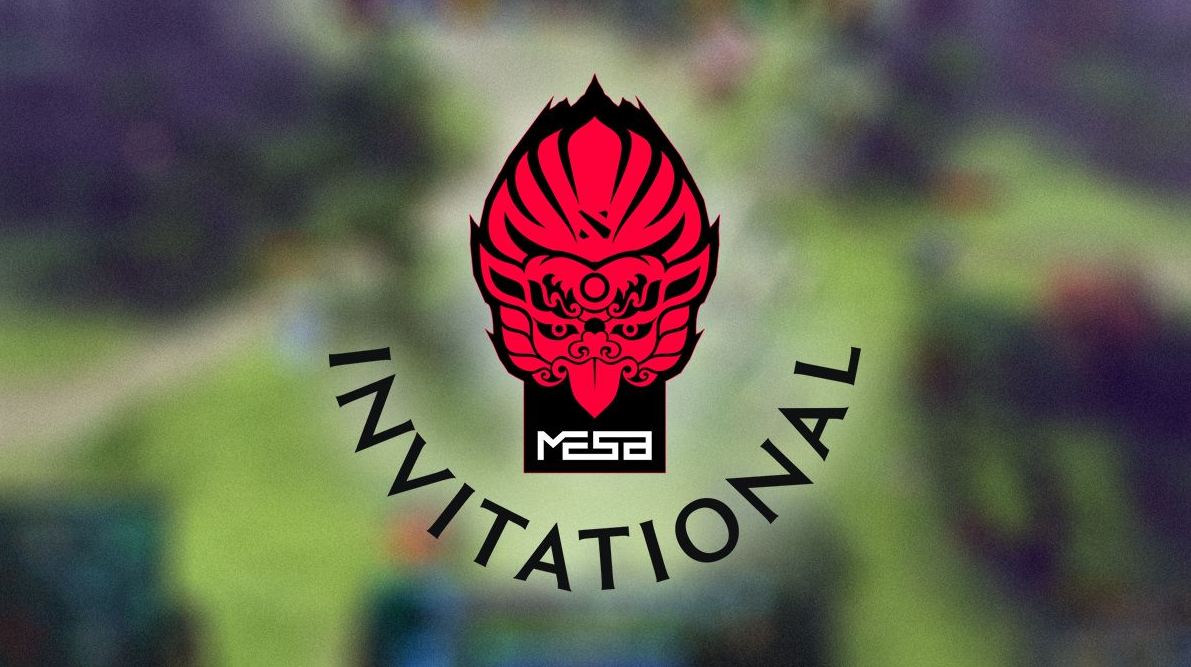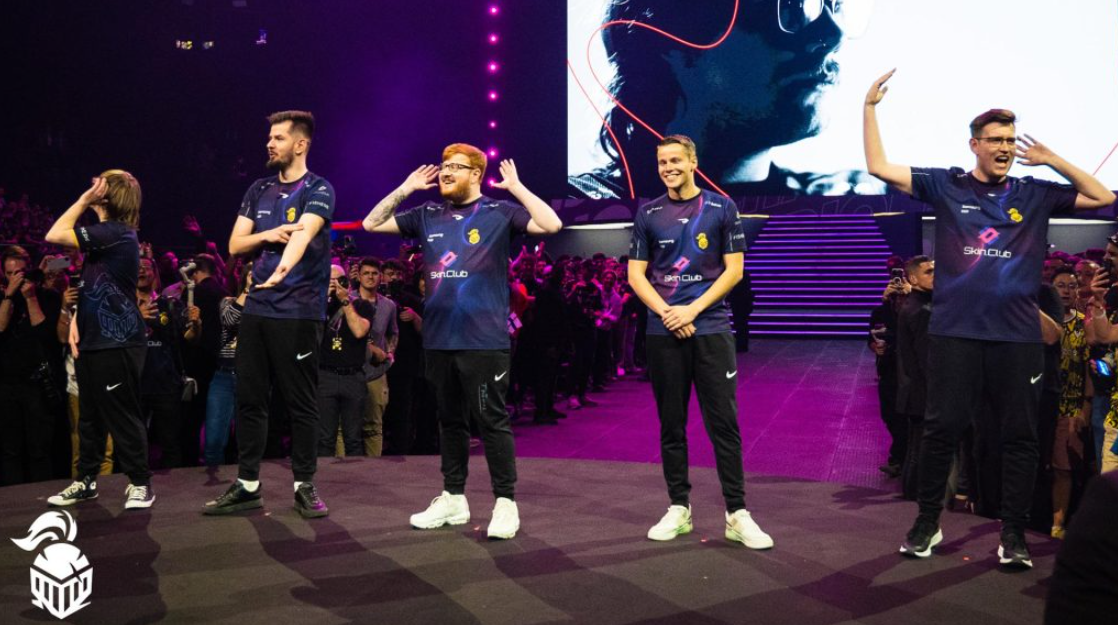Dota 2 Team Draws Controversy for Using Nazi Logo at MESA Invitational 2024

The recent controversy surrounding AnimeVesta Dota 2 has sent shockwaves throughout the esports community, igniting a fervent debate about branding, sensitivity, and historical awareness. During the MESA Invitational 2024, the team showcased its new logo, which many observers noted bore a striking resemblance to symbols associated with Nazi Germany. This resemblance was not intentional; the team aimed to create a compelling and recognizable brand. However, the backlash was immediate and intense, as players, fans, and commentators expressed their outrage across social media platforms. The incident has raised important questions about the role of cultural sensitivity in gaming. As esports continue to grow in popularity and reach a diverse audience, teams must navigate the fine line between effective branding and respect for historical contexts.
This situation has prompted discussions about how organizations can ensure their visuals and symbols do not inadvertently evoke painful historical associations. As the debate unfolds, many advocates are calling for greater education within the esports community regarding symbols and their meanings. They emphasize the need for teams to conduct thorough research before adopting logos or branding elements that may be misinterpreted or offensive. The AnimeVesta incident serves as a crucial reminder of the responsibility that comes with visibility in the competitive gaming arena.
Do you bet on Dota 2? Find out about the best bookmakers with bonuses and competitive odds. Details here!
Table of Contents
The Importance of Cultural Sensitivity in Esports Branding: Lessons from the AnimeVesta Incident
The recent controversy surrounding the Mongolian Dota 2 team AnimeVesta has sparked intense discussions within the esports community. Their new logo, unveiled during the MESA Invitational 2024, drew significant attention for its striking resemblance to the Sturmabteilung (SA) insignia, a symbol closely associated with Nazi Germany. This resemblance was not just a matter of aesthetics; it raised serious questions about cultural sensitivity and the responsibility that comes with branding in the competitive gaming landscape. AnimeVesta’s logo was prominently displayed across in-game banners, team merchandise, and various digital platforms, ensuring that it was visible to a wide audience. As viewers tuned in to watch the matches, the logo quickly became a focal point. Initially, some fans expressed confusion regarding its meaning. However, as discussions began to surface on social media, it became clear that many recognized the logo’s troubling connotations. The outcry was swift, with many community members voicing their indignation and calling for a reevaluation of the team’s branding choices.
The ensuing debate highlighted a crucial issue in esports: the need for heightened cultural awareness. As the industry continues to grow, teams must navigate the complexities of representing diverse cultures and histories. In a globalized environment where players and fans come from various backgrounds, the potential for misunderstandings and misinterpretations increases. This incident serves as a reminder that branding in esports is not just about creating an appealing image; it also involves understanding the historical and cultural significance of symbols. In the wake of the backlash, AnimeVesta released a formal apology. They emphasized that their intention was never to create negative associations and that they believed the logo was copyright-free. The team expressed regret for their oversight, acknowledging that they were unaware of the historical context surrounding the design. They also pointed out that in Mongolia, such critical historical nuances might not be as well understood, which contributed to the misunderstanding.
This apology, while well-intentioned, raised further questions about the processes teams employ when designing logos and branding materials. Many in the esports community called for greater diligence in researching and understanding the symbols being used. It’s essential for teams to consider the potential implications of their branding choices, especially when those choices may unintentionally evoke painful historical associations. The incident has prompted discussions about the education of esports organizations regarding cultural sensitivity. Advocates argue that there should be established guidelines for branding in the industry, ensuring that teams are well-informed about the symbols they choose to represent. This could involve consulting cultural experts or conducting thorough research before finalizing logos and other branding elements. By taking these steps, organizations can avoid similar controversies in the future and foster a more inclusive environment for all players and fans. Additionally, the AnimeVesta situation shines a light on the broader context of how symbols are perceived in different cultures. While the team may not have recognized the implications of their logo, it’s important to understand that symbols can carry vastly different meanings across various societies. What might be seen as a benign design in one culture could evoke strong negative reactions in another. This complexity underscores the importance of cultural literacy in the global esports scene.
As the debate continues, many voices within the community are advocating for a more proactive approach to cultural sensitivity. Some suggest that esports organizations should prioritize cultural education as part of their team development processes. This could involve workshops, seminars, or collaborations with cultural organizations to ensure that teams are equipped to make informed branding decisions. Ultimately, the AnimeVesta incident serves as a pivotal moment for the esports community. It highlights the need for ongoing dialogue about cultural awareness and sensitivity in branding. As the industry evolves, it is crucial for teams to recognize their role in shaping a respectful and inclusive environment. By learning from this experience, the esports community can move forward with greater understanding and commitment to cultural sensitivity, ensuring that the competitive gaming landscape is welcoming to all players and fans.
Reassessing Branding Responsibilities: Lessons from the AnimeVesta Incident in Esports
Following the incident, AnimeVesta took immediate action by removing the controversial logo and initiating the design of a new one that aligns with their core values. The team went on to reassure fans and participants of their commitment to inclusivity and respect, emphasizing that they would exercise greater caution in their future branding decisions. This proactive approach is essential in rebuilding trust and demonstrating accountability to their community. The AnimeVesta situation serves as a powerful reminder of the increasing need for cultural sensitivity in the esports world. As gaming continues to expand its global footprint and gain prominence as a competitive platform, the responsibility for branding becomes more significant. Teams must recognize that their choices can have far-reaching implications, potentially promoting undesirable ideas or symbols that can alienate fans and players alike. This incident may act as a catalyst for the establishment of stricter regulations regarding team branding by various organizations within the esports industry.
Moreover, the conversation surrounding this incident highlights the importance of fostering an inclusive environment within esports. By adopting inclusive marketing strategies and actively engaging with diverse communities, teams can create spaces that welcome all participants. This not only enhances the overall gaming experience but also strengthens the community by promoting understanding and respect among players from different backgrounds. The AnimeVesta incident at the Dota 2 MESA Invitational 2024 underscores the responsibilities that teams have in representing themselves and their values in the esports arena. Given that gaming provides ample opportunities for creativity and self-expression, it is equally vital for teams to be conscious of the historical significance of symbols they choose to embrace. This awareness can help prevent misunderstandings and foster a more respectful atmosphere in competitive gaming.
As the esports industry evolves, there is a growing expectation for teams to prioritize cultural awareness alongside their competitive ambitions. This entails not only understanding the historical implications of certain symbols but also actively engaging with cultural contexts that may be less familiar. Teams can benefit from collaborating with cultural experts or engaging in educational initiatives that raise awareness about the impact of branding choices. In addition to internal efforts, the esports community as a whole can play a role in promoting cultural sensitivity. Fans, players, and organizations can come together to advocate for more inclusive practices and support teams in their branding journeys. This collaborative approach can lead to a richer, more diverse gaming environment that values and respects cultural differences. Furthermore, the fallout from the AnimeVesta incident raises questions about the broader implications of branding in esports. As the industry matures, it is essential for organizations to establish clear guidelines that ensure branding decisions are thoughtful and informed. This can include creating review processes for logos and other branding elements, ensuring that cultural implications are taken into account before public rollout.
The rise of social media also plays a significant role in shaping public perception and reaction to branding choices. Given the instantaneous nature of online communication, teams must be prepared for the swift feedback that can arise from their decisions. This underscores the necessity for teams to be not only reactive but also proactive in their branding strategies, anticipating potential controversies and addressing them before they escalate. In conclusion, the AnimeVesta incident serves as a critical lesson for the esports community. It emphasizes the need for ongoing dialogue about cultural sensitivity and the responsibilities that come with team representation. As the industry continues to grow, there is a unique opportunity for teams to lead by example, fostering an environment that is not only competitive but also inclusive and respectful. By learning from past mistakes and prioritizing cultural awareness, the esports community can work together to create a welcoming space for all players and fans, ensuring that gaming remains a platform for creativity, connection, and understanding across cultures.
Do you bet on Dota 2? Find out about the best bookmakers with bonuses and competitive odds. Details here!




